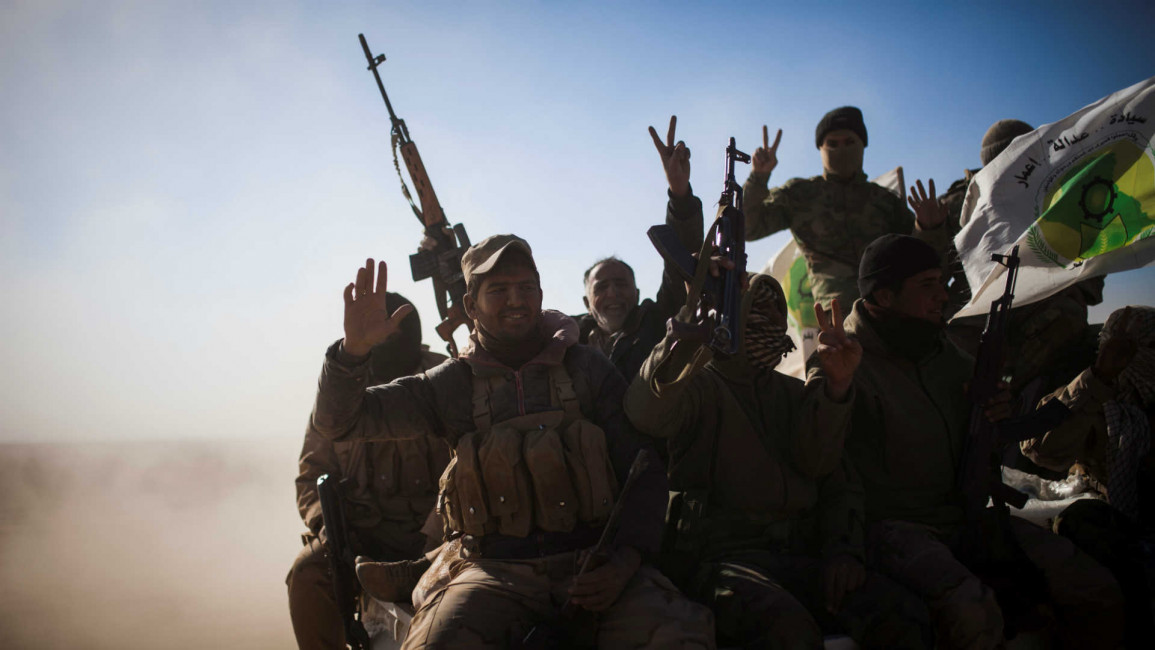Controversy over participation of Iran-linked militia in Iraqi elections
Cracks are emerging in Iraq's ruling National Alliance coalition concerning the participation of members of Hashd al-Shaabi militias in local elections set to take place in September, Iraqi political sources have revealed.
Prime Minister Haider al-Abadi ruled out Hashd al-Shaabi (Popular Mobilisation Forces) participating in the upcoming elections, but others in his coalition are believed to be behind the plans.
Iraq's parliament passed a law recognising the mainly Shia militia alliance as an official force with similar rights to the regular army in December 2016.
As an official security institution, Abadi argued that the Hashd is not eligible to participate in elections.
National Alliance MP Jassim Mohammed Jaafar on Wednesday expressed support for Abadi's stance stating that according to Iraq's election commission it is forbidden for any military institution to stand in elections or participate in the political process.
Powerful Iraqi cleric and leader of the Sadrist Movement, Muqtada al-Sadr has also previously warned against the participation of the Hashd in elections saying it could "transform Iraq" into a country dominated by "military and militia rule".
 |
PMF militias have been linked to a number of massacres and human rights abuses during Baghdad's efforts to liberate mostly Sunni northern Iraq from IS. |  |
However, not everyone is onboard. Another source within the National Alliance speaking to The New Arab on condition of anonymity said that MPs loyal to former pro-Iranian Prime Minister Nouri al-Maliki are pushing for the Hashd al-Shaabi's participation in the elections.
Those advocating for the group's inclusion have pointed out the group's pivitol role turning back advances from the Islamic State group, and its involvement in the Mosul offensive.
The Hashd al-Shaabi were mobilised to defend Baghdad after the Iraqi army's collapse in the north as the Islamic State swept through the country.
However, the militias have also been linked to a number of massacres and human rights abuses during Baghdad's efforts to liberate mostly Sunni northern Iraq from IS.
Some militias within the umbrella organisation also continue to face accusations that they are funded, motivated, and trained by Iran, and the Tehran-backed, Lebanese-Shia paramilitary group Hizballah.
This has led the US-led coalition supporting the Iraqi army in Mosul, openly at least, to avoid providing direct support to Shia militias within the coalition and instead focus on supporting the Iraqi army and elite military units.
Iraq has also formally excluded the militias from the four-month-old operation to take Mosul, fearing the pro-Baghdad militants could commit reprisals against civilians in the city.
Instead, the pro-government forces are positioned to the less populated western areas of Mosul and around Tal Afar, where they hope to block an IS retreat towards Syria and cut-off supplies to jihadis in the besieged city.
Local elections are scheduled to take place in all Iraqi provinces on 16 September, according to a January annoucement made by Abadi, when the government hopes Mosul will fall to the government.



